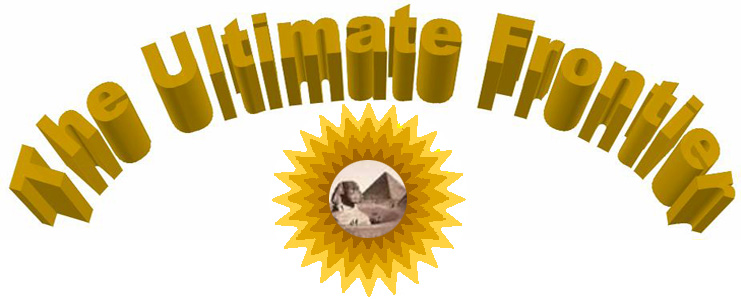|
|
||
|
|
The U.S.A. By Richard Kieninger In 1791
the U.S.A. begins the fifth greatest civilization by guaranteeing the
inalienable rights of each citizen. The States are free and independent
groups of People, subject only to their own Constitution and that of the
United States, which acts as the international business entity for the
States. The State’s political power is inherent in the People, and all free
governments are founded on their authority and instituted
for their benefit. The faith of the People of any State stands pledged
to the preservation of a republican form of government, and, subject to this
limitation only, they have at all times the inalienable right to alter, reform
or abolish their government in such manner as they may think expedient. The U.S.A. has served as a
useful model of democracy to the world, and important parts of the dream of
our founding fathers have been adopted by many other
nations over the past two centuries. Indeed, practical principles exemplified
by this country have been an inspiration to the world for political
independence, industrial productivity, scientific innovation, and religious
and racial tolerance. But we as a people did not
really live up to the demands of our American ideals, and so the promise of
richly rewarding potentials remains unfulfilled. Social and political
pressures have been brought to bear on our populace
to reduce them to economic cogs in the wheels of industry just as in the
other nationalistic, bureaucratic societies of the world. Moreover, we have
been gradually led to give over responsibility for ourselves to special
professional interests which have obtained legalized monopolies to discourage
us from educating our own children or taking care of our own health or
burying our own dead or involving ourselves in politics. Instead, we are
compelled to surrender such inherently personal rights to “professional”
educators, doctors, morticians, and legislators. The net result of such
infringements on our self-determination is to further society’s pressure to
mold each of us into predictable units of social and economic compliance. He who refuses to conform to the dictates of a plethora of
“authorities” is ostracized by one’s very own peers who evidently seek
security in the system rather than freedom, who settle for dependence rather
than strive for self-determination, and who retreat into noninvolvement
rather than pursue self-actualization. Freedom belongs only to those
who take full responsibility for themselves in all those social structures which are desirable and necessary. Things
which one can do for himself he
should make the effort to do; for this keeps a person more in touch with his
whole self. The boredom, ennui, and vacuous pleasure seeking so typical of
our people today may yet give way to creative pursuits which can provide the
self-esteem such creativity engenders. The do-it-yourselfer fulfills an old
American image—build your own house, make your own
furniture, execute your own artworks, grow and preserve your own food, learn
nutrition and hygiene, make your own music. We modern Americans are
encouraged by our system to purchase and consume these items rather than
experience our own involvement with them so as to
express ourselves more fully and satisfyingly. In some ways, the coming
breakdown of the present system, which has literally broken all the
inexorable laws of economics, will return people to a simpler economic order
and put them back in touch with themselves and nature. The technological
marvels essential to the advance of civilization may then be employed in more balanced perspective. The over-specialization of
factory work and mass-production techniques have
taken their toll in the form of workers’ job dissatisfaction and a sense of
becoming like automatons. Learning a diversity of skills can help create
one’s feeling of balanced usefulness even if these are only
engaged in outside one’s regular employment for hire. Although the tradition of individual freedom in our country’s founding has since been largely undermined, one’s right to pursue life-affirming relationships with our fellow human beings and assert our natural needs in ways which produce happiness and psychological health for all concerned should be held ever sacred. Much lip service has been paid to the American heritage of the pursuit of individuality and freedom, but society, the church, large corporations, and government bureaucracy have really discouraged the inquiring, free-spirited individualist; and indeed, individualists are labeled heretics, nonconformists, and subversives in hope that they will be shunned. Individualists tend to be the lifeblood of a nation, and their refreshing, forward drive is naturally attractive; therefore, they are considered dangerous persons. We must all be allowed—indeed, encouraged—to strive for Egoic growth and individuality of expression toward whatever profound and often unexpected ends spiritual advancement may carry us. Yet we tend as parents, teachers, and authorities to limit young people’s growth by telling them, in effect, to conform to what has gone before and to not anticipate being able to go beyond our traditional accomplishments and our own fallible understandings. Society at large inwardly delights in crushing idealists, saints, and any others who reach above the norm. Therefore, everyone seems cowed from making of themselves the better persons they know how to become. A nation is people, and the
aggregate character of its populace determines whether a nation will prosper
or fail. It would seem that Americans have largely strayed from the moral
strengths and Cosmic Laws on which this nation was
originally founded; therefore, our people themselves have since
weakened the national structure that should have been expected to internally
withstand the buffetings of world events. But there
are still good men and women who will form the Nation of God on Earth along
the lines envisioned by Melchizedek. |
|
|
|
|
|
